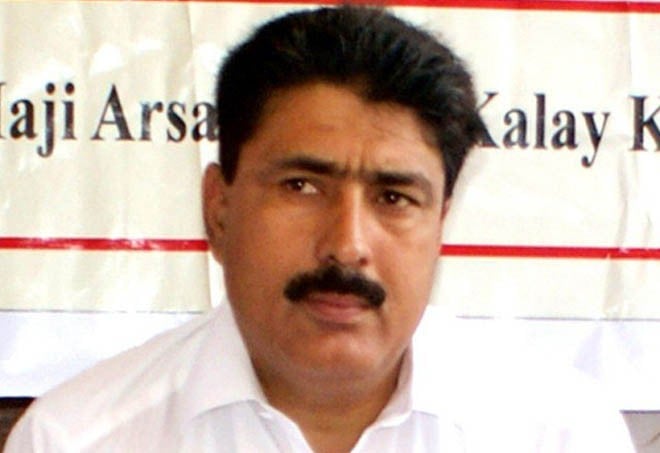
Dr Shakil Afridi, considered as a major obstacle to the improvement of ties between the US and Pakistan, is in the news again

Dr Shakil Afridi, who is said to have run a planned vaccination campaign in Abbottabad to help the United States track down al-Qaeda’s top man Osama bin Laden, is in the spotlight, again.
Afridi, who was in Peshawar jail for the past six years, is said to have been moved to a "safer location" at the end of last month out of "security concerns". Some media reports say he has been moved to Adiala Jail, Rawalpindi, close to the country’s capital and army headquarters. However, Punjab jail authorities have declined to comment, terming the matter "sensitive".
Following his shifting to a new place, a report by Sputnik, a Russian wire agency, has emerged that claims that Afridi was moved by Pakistan’s top Inter-Services Intelligence (ISI) after leaking of a United States plan to free Afridi by breaking Peshawar jail. "The US Central Intelligence Agency (CIA) failed to conduct an operation to stage a prison break for Pakistani doctor Shakil Afridi who had helped US authorities track down OBL," the report claimed.
Pakistani authorities detained Afridi in 2011 after OBL was killed. Later, Afridi was sentenced to 33 years for involvement in anti-state activities in Khyber Agency by a tribal court in 2012. A tribal court, on his appeal, set aside 10 years from his sentence.
"We are clueless. The authorities have not told us why and where Afridi has been moved from the Peshawar Jail. Even his family does not know about this change," Jameel Afridi, the jailed doctor’s brother tells The News on Sunday.
The issue of Afridi’s release is considered as a major obstacle to the improvement of ties between the US and Pakistan. America wants Afridi freed and extradited, a demand which Islamabad consistently declines saying he would be dealt according to state laws. Afridi’s release is considered very crucial for the US which spent billions of dollars to hunt OBL since the attack on twin towers on September 11, 2001 which led to the "War on Terror" in Afghanistan.
Some media reports, though officially not confirmed, say Washington has offered Islamabad to exchange Afridi for Pakistani scientist Dr Aafia Siddiqui who is serving a jail term in the US for helping Al-Qaeda in Afghanistan and trying to kill an American soldier.
Dr Mohammad Faisal, spokesperson of Foreign Office, however, denied impressions of any deal. "There is no deal with the US government nor it is intended over the matter of Shakil Afridi," he says, adding, "Interior Ministry is dealing with the subject."
"Khyber Pakhtunkhwa government has repeatedly been requesting the federal government to shift Afridi from KP to another place because of danger to his life from Taliban in jails and a general disliking for help in tracing OBL," says senior journalist Rahimullah Yusufzai. "This could be one reason behind shifting him."
"There is no deal with the US government nor it is intended over the matter of Shakil Afridi." -- spokesperson Foreign Office.
Afridi is sentenced by a tribal court which falls under the federal government. "KP government wants to keep him outside the KP jurisdiction," he says.
Yusufzai also does not rule out making of a plan by CIA to get Afridi freed from Peshawar Jail. "His extradition is a major demand of the US and possibility of such a plan cannot be ignored," he views. Also, he says, "there have been attacks on KP jails in the past by various extremist groups."
The then CIA director Leon Panetta and then-US Secretary of State Hillary Clinton had publicly confirmed Afridi’s role in tracing OBL. The US intelligence, through fake vaccination campaign, is said to have obtained a blood sample from one of the children living in the Abbottabad compound to trace OBL.
The US, since then, through messages and warnings, has sought Afridi’s acquittal. Two years ago, President Donald Trump, in his presidential campaign said he could have Afridi released in two minutes and he was certain that the Pakistani officials would not object. Pakistan, in response, said it would not release Afridi under any US pressure.
In early 2015, the US Congress approved a prohibition on giving Pakistan aid worth $500 million while pressing for the release of Dr Shakil Afridi. In mid-2017, reportedly, Trump administration spoke with Pakistan about the prospect of freeing Afridi.
Afridi, considered a top medic before this episode, was sentenced for 33 years in 2012, mainly, for having links with an extremist and banned outfit Lashkar-e-Islam. Generally, he is regarded as a traitor by Pakistan’s security agencies for helping CIA. Out of 23 years’ total sentence, he has spent almost seven years in jail.
His revision petition is still pending before the Federally Administered Tribal Area tribunal. His counsel Qamar Nadeem Afridi says "the hearing of the revision petition is scheduled for this May 31." He said in the appeal, "We have maintained that Afridi has not committed any crime and be set free." The last hearing supposed to be held in April was adjourned due to absence of the prosecutor. The court has directed to ensure prosecutor’s presence on the next hearing.
Yusufzai rules out chances of Afridi’s release at the moment when Pak-US relations are already not good. "I don’t think Pakistan is ready to extradite or free Afridi in the present situation when the relations are already tense."